Lawmakers give final OK to congressional, legislative maps
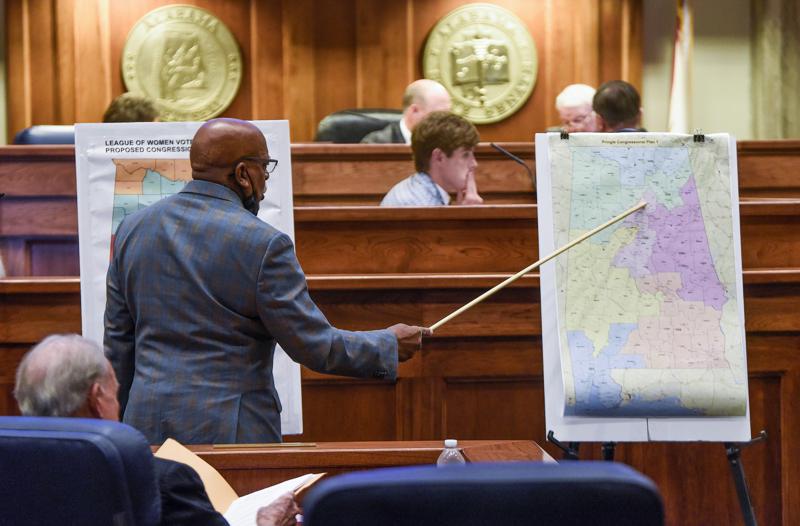
The Alabama Legislature gave final approval Wednesday to new congressional, legislative, and school board districts for the state to use over the next decade, but both Republicans and Democrats expect the plans to be litigated in court. The plans are expected to maintain Republicans’ six-to-one edge in the congressional delegation and lopsided majority at the Alabama Statehouse. Democrats unsuccessfully proposed the creation of a swing district centered in Birmingham that would be competitive for the two political parties. The maps now go to Alabama Gov. Kay Ivey for her signature. If approved, they will be used in the 2022 elections. This is the first time lawmakers do not face the burden of preclearance by the Justice Department — after the U.S. Supreme Court removed the requirement — but lawmakers expect the plans will be litigated in court challenges. House Speaker Mac McCutcheon said there are always lawsuits on redistricting plans. But he said the plans are a fair adjustment of district lines to account for population changes. “We tried to follow everything to the closest letter of the law that we could so we might have a map that would stand … a court hearing,” the Republican speaker said. Democrats opposed the GOP-drawn lines, arguing they are gerrymandered by improperly dividing counties and communities of interest. They also said the maps do not reflect the state’s increased political and racial diversity. The plan is expected to maintain the current partisan balance in the seven-member congressional delegation with six Republicans elected from heavily white districts and one Democrat elected from the only majority-white district. Alabama has a population that is about 26% Black. Republicans voted down Democratic efforts to create one swing congressional district centered in Birmingham that would be competitive between Republicans and Democrats. The swing district would have a population that is 40% Black. Sen. Rodger Smitherman of Birmingham said the plan would avoid splitting counties and accurately reflects the politics of the area which has substantial numbers of both Republican and Democratic voters. “That district itself could go either way that the citizens so desire, and that’s reflective of that area,” Smitherman said. Sen. Jim McClendon, the co-chairman of the redistricting committee, disputed that the congressional districts could be drawn that way without putting the state’s only African American representative at risk of losing an election. There is already a pending lawsuit challenging the state’s current congressional districts, saying they are “racially gerrymandered” and limit Black voters’ influence in all but one congressional district. Challenges are also expected to the legislative maps. The GOP-controlled Legislature in 2017 had to redraw legislative maps under court order to fix racial gerrymandering in 12 districts. The ruling came after Black lawmakers filed a lawsuit challenging the maps as “stacking and packing” Black voters into designated districts to make neighboring districts whiter and more likely to elect conservative Republicans. House Minority Leader Anthony Daniels said this year that there appeared to be “a lot of packing” of white voters in Republican districts. “There was more packing on the majority side — 70-80% white districts in areas that I know should be more diverse,” Daniels said. McCutcheon said in drawing the lines this year that they first drew them without looking at race and based on the existing map and population changes. He said they later calculated the racial composition of districts. “I’m ready to defend these maps in court and if the past is any indication of what’s to come, I probably will be doing so,” McClendon said. Republished with the permission of the Associated Press.
Alabama: Vaccine mandate will lead state employees to quit

Alabama argued in a lawsuit challenging the federal vaccine requirements that many university and state agency employees would leave their jobs if required to get vaccinated against COVID-19. Alabama joined with a coalition of other states in a lawsuit filed late Friday challenging the vaccine mandate on federal contractors. The lawsuit is part of Republican-led efforts to oppose the federal requirements. Alabama Attorney General Steve Marshall this week also urged businesses, universities, and state agencies to consider employees’ requests for medical and religious exemptions. “From the moment the White House tried to force this vaccine on to Americans, I have said that Alabama is standing strong against it and that the way to stop this is to go to the courts,” Alabama Gov. Kay Ivey said in a statement this weekend. Alabama has one of the lowest vaccination rates in the country with just 44.7% of the population fully vaccinated, compared to a national average of 58%. In announcing the rules in September, President Joe Biden said the unvaccinated were hindering the nation’s recovery. “Without vaccination requirements, we face endless months of chaos in our hospitals, further detrimental impacts on our economy, and anxiety in our schools. With them, we will accelerate our path out of the pandemic,” the White House wrote on a page about the requirements. In the lawsuit filed late Friday, Alabama claimed that many university and Alabama Department of Public Health employees would “likely quit their jobs rather than receive the COVID-19 vaccine as a condition of further employment.” Even as the state sues, Auburn University and the University of Alabama campuses have said employees must get vaccinated by Nov. 8 because the campuses all are federal contractors. Vaccine mandates have already been the subject of litigation. The Supreme Court has rejected an emergency appeal from health care workers in Maine to block a vaccine mandate that went into effect Friday. Many of Alabama’s public universities and some state agencies have received notice that they are subject to the federal-contractor vaccination mandate, according to the attorney general’s office. Marshall issued an advisory this week instructing Alabama-based employers, including public university employers, to liberally interpret “in favor of the employee” any requests for medical and religious exemptions to the vaccination mandate. When an employee requests a religious exemption, Marshall said state agencies should not “inquire into the validity of an employee’s religious beliefs, including the motives or reasons for holding the belief.” That deviates from federal guidance where federal employees are asked to participate in an interactive process and bring documentation supporting the request for an exemption. Twelve bills related to vaccinations were introduced in the ongoing special session on redistricting, but key lawmakers said they do not expect to debate the proposals before the winter regular session. House Speaker Mac McCutcheon said Republicans want to fight the mandate but suggested it would be counterproductive to pass legislation that couldn’t impact federal law. The U.S. Constitution’s supremacy clause is clear that federal law overrides any conflicting state laws. “The last thing we want to do is have a knee-jerk reaction on something that may sound good politically, but in substance what does it do. You haven’t done the people any justice by doing it that way,” McCutcheon said. Businesses with federal contracts could be placed in an uncomfortable situation if torn between conflicting state and federal mandates. Some current mandates — such as a hospital requiring doctors to get yearly flu shots — could be impacted by the proposed bills. Republican Sen. Arthur Orr of Decatur said there will be ongoing discussions about how to craft legislation that could help the state litigation. Orr said he is hearing more and more stories of people faced with losing their jobs because they are not vaccinated. “It’s been tragic,” Orr said. Republished with the permission of the Associated Press.
Steve Marshall advises Alabama federal contractors not to investigate employees seeking vaccine exemption
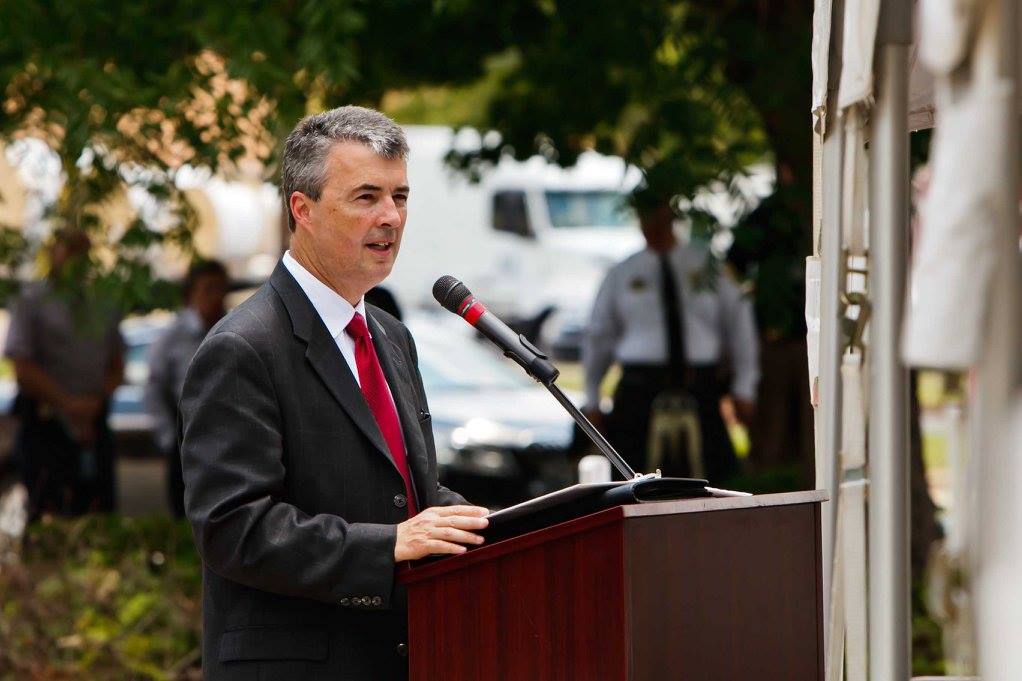
Alabama Attorney General Steve Marshall, along with Republican state legislative leaders and the state Personnel Office, have issued an advisory regarding the COVID-19 vaccine mandate for federal contractors. The advisory urges federal contractors in the state to not investigate employees seeing a religious exemption to the COVID-19 vaccine. The letter states, “Alabama-based employers, and particularly public university employers, should liberally construe—in favor of the employee—any exemption sought by an employee for medical or religious reasons. In reviewing an employee’s request for a religious exemption, employers should not inquire into the validity of an employee’s religious beliefs, including the motives or reasons for holding the belief.” The letter was co-signed by State Personnel Department Director Jackie Graham, Mac McCutcheon, Greg Reed, Danny Garrett, Arthur Orr, Steve Clouse, and Greg Albritton. The letter comes after the University of Alabama and Auburn University said they will require all federal employess to be vaccinated by December 8. The schools issued a joint statement last week saying, “As federal contractors, and like most higher education institutions, the University of Alabama System campuses – including The University of Alabama, the University of Alabama at Birmingham, and the University of Alabama in Huntsville – and Auburn University must comply with the executive order and accompanying guidance, unless that executive order is withdrawn or modified.” “Failure to comply will place our universities in jeopardy of losing hundreds of millions of dollars received through federal contracts and awards, as well as thousands of jobs funded by those dollars.” Marshall also added that any public university employee that is denied a reasonable request for exemption should contact the Civil Division of the Attorney General’s Office. The letter explains, “No employee of a public university in Alabama, nor any employee of Alabama state government, will forfeit their livelihood as a result of the federal government’s flagrant overreach.” “The Attorney General’s Office, working with the State Personnel Department, will assist in transferring these employees into other public university/state employment,” the letter continued. Marshall also added that the Attorney General’s Office is preparent a lawsuit to fight the mandate. Marshall stated on Twitter, “Alabama-based employers should liberally construe – in favor of the employee – any exemption sought by an employee for medical or religious exemptions with regards to vaccine mandates. My office is preparing its lawsuit to challenge the federal government.”
Alabama bypasses bid process to move fast on prison builds
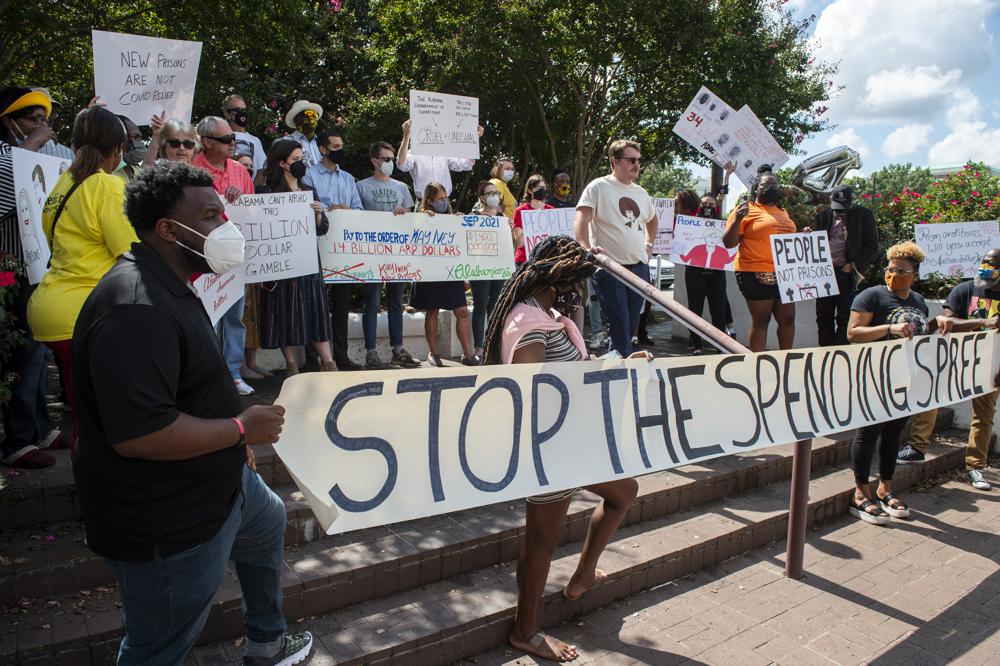
Alabama intends to move quickly on building new prisons under a plan that taps pandemic relief funds and could skip the normal bidding process for the construction of two supersize facilities. Alabama Gov. Kay Ivey Friday signed into law the $1.3 billion construction plan to build two 4,000-bed prisons and a new prison for women and renovate other facilities. The plan taps $400 million from the American Rescue Plan — money the state has already received — and could steer the construction contracts toward companies that previously qualified for the work. The construction bill signed into law bypasses the normal bidding process for the two 4,000-bed facilities. It specifies that the state instead can negotiate directly with entities that were part of development teams that qualified for the projects under a lease plan that Ivey’s administration had pursued but abandoned. Those entities include Birmingham-based construction giant BL Harbert International and Montgomery-based Caddell Construction. Caddell and BL are each expected to be the main contractors for one of the two prisons, Republican Sen. Greg Albritton said. Lawmakers said working with those companies will allow the state to incorporate the prior work, saving both time and money. “The main thing is time, and time is of the essence. This is going to enable us to start these projects 12 months in advance, and time is money,” said the bill’s sponsor, Republican Rep. Steve Clouse. House Speaker Mac McCutcheon, defending the selection language, said the companies previously went through a selection process under the lease plan. The law specifies that if the state doesn’t reach an agreement with one of those companies, officials will start over with a fresh selection process seeking bids on the work. Alabama officials will have the money to start construction after lawmakers approved $400 million in virus funds and another $150 million from the state’s general fund, in addition to agreeing to borrow $785 million through a bond issue. “We can start this construction now with the money we have on hand now … without having to wait to float bonds,” Albritton said. “I believe we’re going to see dirt flying in January.” The U.S. Department of Justice has sued Alabama over a prison system “riddled with prisoner-on-prisoner and guard-on-prisoner violence.” The Justice Department noted in an earlier report that dilapidated facilities were a contributing factor to the unconstitutional conditions but wrote “new facilities alone will not resolve” the matter because of problems in culture, management deficiencies, corruption, violence, and other problems. Dozens of advocacy groups objected to the prison construction plan. “We do not believe the issues facing Alabama’s prisons are about the buildings,” said Bryan Stevenson, executive director and founder of the Equal Justice Initiative. “We think it’s entirely about leadership, culture, and the practices,” Stevenson said. “I just think engaging in a costly effort around new prisons is not going to solve the problem and worse is distracting us from dealing with the prisons.” Republished with the permission of the Associated Press.
Alabama House approves prison plan using virus funds
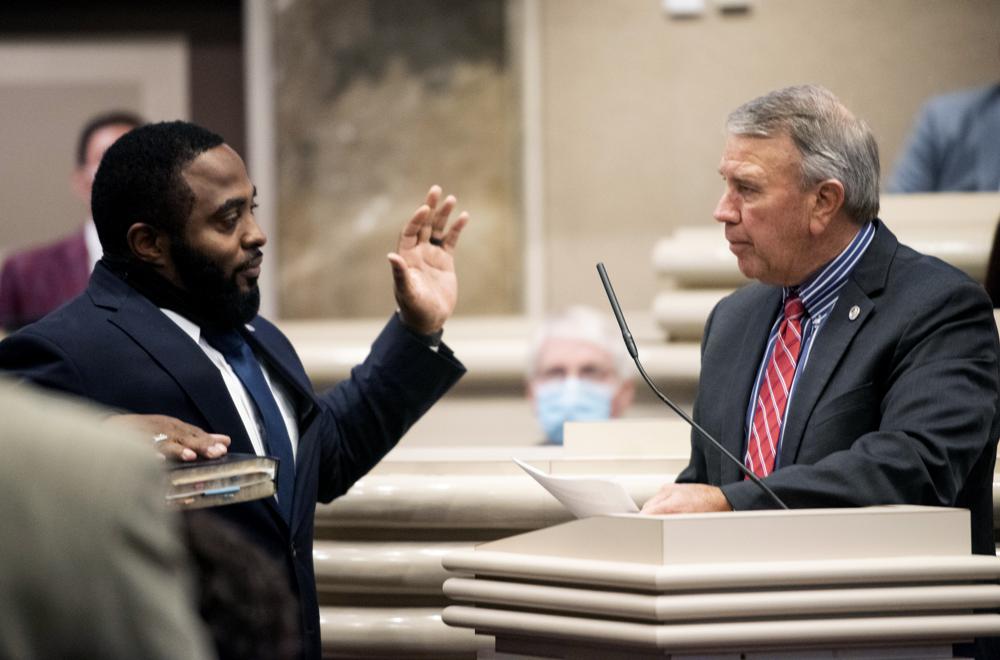
Alabama lawmakers on Wednesday headed toward swift approval of a prison construction package that would tap $400 million of the state’s pandemic relief funds to help pay for building three new lockups. The House of Representatives voted 74-26 for the $1.3 billion construction plan and 75-25 to use $400 million from the state’s share of American Rescue Plan dollars to help pay for the construction. The votes came after Republicans, who hold a lopsided majority in the Alabama Legislature, voted to cut off debate. The bills now move to the Alabama Senate. Republican Gov. Kay Ivey and GOP legislative leaders touted the construction plan as a partial solution to the state’s longstanding problems in corrections that led the U.S. Department of Justice to sue the state last year. The proposal brought sharp criticism from state Democrats, who argued it will not remedy the prison problems and said the state has needs in health care and education that could be helped by the $400 million. “I’m thinking about families, and how this money was supposed to be an additional injection of resources into the community. All of these folks that have been hurting, and we’re using this $400 million to build prisons,” said Democratic Rep. Merika Coleman of Pleasant Grove. Ivey and Republican legislative leaders have argued that the plan is appropriate because the American Rescue Plan says states can use some of the funds to replace revenue lost during the coronavirus pandemic to maintain services. “We are talking about human beings and their lives,” said House Speaker Mac McCutcheon, apparently referencing the people who live and work in dilapidated and dangerous state prisons. “This money is well-spent. It is something that needs to be fixed.” The lone Democrat in Alabama’s congressional delegation, U.S. Rep. Terri Sewell, wrote on Twitter that she is disturbed her state is using the pandemic money for prisons, “especially as the virus rages in our state.” “To be clear, the current state of the Alabama prison system is abhorrent, but the use of COVID-19 relief funds to pay for decades of neglect is simply unacceptable,” she said. The Department of Justice last year sued Alabama, saying male inmates in the state live in prisons “riddled with prisoner-on-prisoner and guard-on-prisoner violence.” In a 2019 report that preceded the lawsuit, the DOJ made it clear that new prisons alone will not solve the problems. Federal officials wrote that dilapidated conditions were a contributing factor to what it called unconstitutional conditions but emphasized that, “new facilities alone will not resolve the contributing factors to the overall unconstitutional condition of … prisons, such as understaffing, culture, management deficiencies, corruption, policies, training, non-existent investigations, violence, illicit drugs, and sexual abuse.” Alabama Democratic Party chair and state Rep. Chris England said the prison plan being proposed would not translate into a better system. “We will still be overcrowded. We will still be understaffed. We will still be under-resourced. And if our current commissioner is somehow still working, we will still be mismanaged,” England said. Republican Rep. Steve Clouse of Ozark said new modern prisons — in which prisoners would be housed in cell blocks instead of large dormitories with rows of bunks — would be a “foundation” for improving the system. “It’s a piece of the puzzle. It’s a big piece,” Clouse said. The Alabama prison construction proposal calls for at least three new prisons: one with at least 4,000 beds in Elmore County with enhanced space for medical and mental health care needs; a second of the same size in Escambia County; and a women’s prison — as well as renovations to existing facilities. Six prisons would close. The package of bills also includes a retroactive sentencing change that could allow up to 700 nonviolent inmates to seek shorter sentences, and a proposal to buy an empty private prison and use it for rehabilitation programs. Outside the Alabama Statehouse, about 40 people, including some parents of inmates, protested the plan and the use of pandemic funds. Carrying a banner that read, “Stop the Spending Spree,” the group said Alabama had other needs in medical care and education. “All they want is to build these prisons. They don’t care about reform,” said Sandy Ray, whose son died in a state prison in 2019 following a confrontation with officers. Republished with the permission of the Associated Press.
Thad McClammy, 78, dies of natural causes
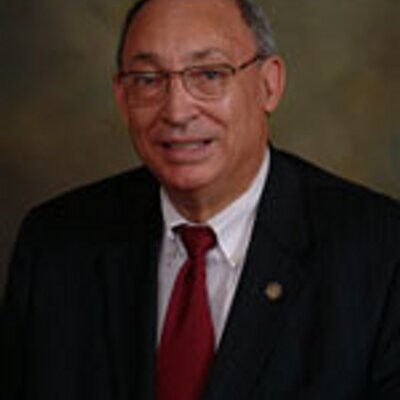
An Alabama state representative died Saturday of natural causes, the House of Representatives said in a news release. State Rep Thad McClammy, a Democrat from Montgomery, died of natural causes, the statement said. He was 78. McClammy was first elected to the Alabama House of Representatives in 1994 to represent District 76, which includes east, south, and western sections of the city of Montgomery. A graduate of both Alabama State University and Auburn University at Montgomery, he was a real estate broker and developer. “The people of District 76 have lost not only their champion in the House but also a very fine man, and I’ve lost a friend,” House Speaker Mac McCutcheon, R-Monrovia, said. “I was honored to serve with Thad and watched how he took care of the people in his district every day. My wife Deb and I send our heartfelt condolences to his family.” Gov. Kay Ivey ordered flags lowered in honor of McClammy. “Thad was a great man and loyal Democrat who served his constituents well. We express our deepest condolences to his family and friends. He will be truly missed,” the Alabama Democratic Party said in a statement. McClammy was chairman of the Montgomery County Legislation Committee and served as the ranking minority member on the House Judiciary Committee and the House Military and Veterans’ Affairs Committee. He also served on the House Financial Services Committee. McClammy was always gracious and solution-oriented, said Republican Rep. Steve Clouse, who was elected to the House the same year as McClammy. “He was just a great guy, he was always very friendly and tried to find a solution and not be divisive,” Clouse said. Funeral arrangements are pending. Republished with the permission of the Associated Press.
Bill Poole appointed to serve as state finance director

Gov. Kay Ivey announced that she has appointed Rep. Bill Poole to serve as Alabama’s finance director, effective August 1. Current director Kelly Butler is retiring. He announced his retirement in June, stating it was due to complications of Lou Gehrig’s disease. Ivey stated, “Bill Poole is one of the most gifted public servants Alabama has seen in many years, and his exceptional leadership qualities, and the respect he commands on both sides of the aisle in the Alabama Legislature, makes him uniquely qualified to serve as Alabama’s next finance director. His detailed focus on education funding demonstrates a depth of knowledge in our state’s budget process that few can match and his passion for advancing good public policy gives him an added platform to help me and my administration continue to seek out new solutions to solving many of Alabama’s long-neglected challenges. I’m more than pleased he agreed, once again, to serve our state in this new role, and I know he will do a bang-up job.” Poole is a member of the Alabama House of Representatives and has served as the House Ways and Means education chairman. He also serves as chairman of Innovate Alabama, a statewide commission charged with developing a long-term strategy to expand Alabama’s economy. Poole was first elected to House District 63 in 2010. He graduated from the University of Alabama and the University of Alabama School of Law. He has worked in private practice since 2004. “I am deeply thankful to Governor Kay Ivey for offering to me the opportunity to serve as finance director for the state of Alabama,” Rep. Poole commented. “My service in the Alabama House of Representatives has been one of the most rewarding experiences of my life. I extend my sincere thanks to the citizens of House District 63 and the entire Tuscaloosa community for electing and trusting me, and I have always worked hard to honor that trust and fulfill my responsibilities at the highest standard. I also extend my sincere thanks to my colleagues in the Alabama House of Representatives, and particularly my colleagues on the House Ways and Means Education Committee.” “I am excited to accept this new role and embrace this new challenge, and I will continue to do my very best on behalf of the state of Alabama,” Poole continued. “As the governor and others have said, Kelly Butler set a high bar for dedicated service, integrity, and transparency during his 30-plus years of public service. “I am grateful to have Kelly’s full support going forward, which will help ensure a smooth transition.” Poole helped to pass Rebuild Alabama, which in two years, has appropriated $295 million to the Alabama Department of Transportation (ALDOT) projects on the state highway system. He was also the Alabama Incentives Modernization Act sponsor, a law that aimed to make the state more attractive to tech-based companies and entrepreneurs. He currently serves as chair of the Tuscaloosa County Legislation Committee. Speaker of the House Mac McCutcheon released a statement, “Rep. Bill Poole’s tremendous success as the House education budget chairman is evidenced in successive years of record classroom spending, expanded programs on both the K-12 and higher ed levels, and improved academic measures. Universally respected and trusted by his colleagues on both sides of the aisle, Chairman Poole has proven to be a responsible and pragmatic steward of taxpayer dollars. “The same skills and talents that allowed him to enjoy great success as a committee chairman and lawmaker will also serve him well as state finance director,” he continued. “Though the House will miss his leadership, Gov. Ivey was right to recognize that Bill Poole is the right man for the right job at the right time, and Alabama will benefit greatly from his service.”
Speaker Mac McCutcheon won’t seek reelection in 2022
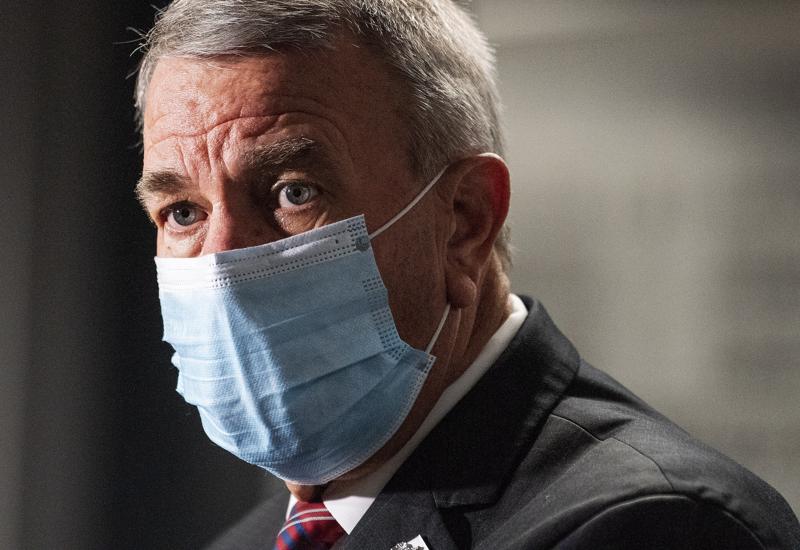
Alabama House Speaker Mac McCutcheon said Monday he will not seek reelection next year. McCutcheon, 68, said in a statement that he is stepping away from politics to spend time with his family and to do some traveling with his wife during retirement. “It’s been an honor and a privilege to represent the people of District 25 in the House and the citizens of the State of Alabama as speaker, but after four terms it’s time to go home,” McCutcheon said. McCutcheon, a Republican from Monrovia, is a former police officer and crisis negotiator. He was first elected to the House in 2006. He served as the chairman of the influential House Rules Committee, which decides what bills come up for debate, from 2012 to 2016. McCutcheon came to the helm of the House at a time that the state was being battered by scandals. McCutcheon was selected as speaker in 2016 to replace former House Speaker Mike Hubbard, who was removed from office after being convicted on ethics charges. McCutcheon, known for his affable demeanor, had promised to depart from the authoritative style of his predecessor. “The days of the imperial speakership are over,” McCutcheon said at the time. House Majority Leader Nathaniel Ledbetter, R-Rainsville, said McCutcheon had restored stability to the speaker’s office. “Combining a firm hand with a kind heart, he worked to ensure that the voices of all members — regardless of rank or party affiliation — were given the opportunity to be heard,” Ledbetter said. Alabama Gov. Kay Ivey said people should be proud of McCutcheon. “Not only has he worked hard for Alabama, Mac is simply a good guy,” Ivey said. McCutcheon’s tenure still saw its own controversy. In 2017, the House of Representatives began impeachment hearings against then-Gov. Robert Bentley. Bentley later resigned. McCutcheon said he had quietly warned Bentley in a “friend-to-friend” meeting that there were enough votes in the House to impeach him. With McCutcheon as speaker the GOP-dominated House of Representatives continued to push a socially conservative and pro-business agenda. Lawmakers in 2019 passed legislation what was then the most stringent abortion legislation in the nation, making performing an abortion a felony including in cases of rape and incest. The law was blocked by a federal judge. However, House Minority Leader Anthony Daniels, D-Huntsville, who serves in the same local delegation as McCutcheon, said he thought the last legislative session was one of the most successful during his time in Montgomery. McCutcheon said he is proudest of working with House members. “I have nothing but respect and admiration for every member of the House,” McCutcheon said. “We’ve had our political disagreements, but it was never personal, and I will treasure my days in the House for the rest of my life,” McCutcheon said. A new speaker will be selected in the organizational session in 2023.
Winners and Losers of the 2021 session
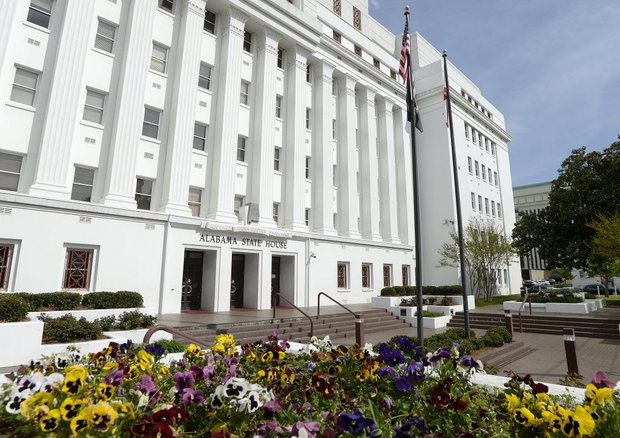
Every session wraps up with winners and losers. This year, there’s no doubt that the people of Alabama were the biggest loser, but there were some stand-out wins and losses too. Overall I was incredibly disappointed in this legislative session, mainly for the opportunities lost. On the other hand, there were some notable successes that need to be acknowledged. Winners #1: Senator Tim Melson & Representative Mike Ball “Pleasantly surprised!” There’s no other way to describe the feeling when the bill sponsors of the medical marijuana bill got it passed and signed by Governor Kay Ivey. After all the hours of irrational ranting and raving and mindless huffing and puffing (no pun intended) by those acting like allowing a small number of patients to have access to a limited amount of medicinal marijuana was going to lead to the fall of civilization, I was worried. The good guys won out, though. The very real, heartwarming stories of those who would benefit overcame the idea that the Pot Man has been sitting at home longingly considering getting high but just waiting for it to be available in a non-smokable, non-vape, non-flavored medicinal way. Winner #2: The anti-gaming coalition I debated putting the Porch Creek Indians on the losing list, but truly I think the bigger point is that this was a big win against big spending and a bad bill. It’s hard to pinpoint exactly who stopped the gaming bill. It was quite a group effort. If a finger has to be pointed, I’d join Senator Del Marsh in his assessment to say Speaker Mac McCutcheon can take credit for killing the bill with a shout-out to Rules Chairman Mike Jones for the assist. Of course, the Donald Trump Jr. tweet didn’t hurt either; kudos to whoever got that done. House leadership was certainly as responsible as all the other gaming interests in the state, the religious/moral opponents (API, Eagle Forum & others), and the democrats all combined in killing the bill. While the democrats thought they’d negotiate their way into a jackpot of their own with a wishlist a mile long to come on board in the end, it was the fact the speaker left the bill off the agenda so long that ended up being the favor to those who wanted to see the current proposal dead. His actual reasons and efforts (or lack of efforts) are still a mystery, with hemming and hawing about not having the votes but not bringing anything to the floor and not taking it up while a day was wasted on vaccine passports is curious. Winner #3: Wes Allen Wes Allen has always been a strong and influential member. Using his time as a probate court judge to help his perspective as a house member has served him well, but with his ban on curbside voting passing just after he announced he was running for Secretary of State, he’s looking like he’s going to be the man to beat for that open seat. Beyond the election bill Allen also passed HB 460 the Farm and Forest Products Tag Bill. AFLA describes that bill as a legislative victory. They summarized it saying, “The bill would lift limits on the purchase of F4 farm tags for larger trucks. It also would allow log trucks to purchase L tags and be exempt from the International Registration Plan. Currently, forest product haulers over 42,000 pounds must carry a commercial license plate. Existing rules put Alabama farmers and loggers at a competitive disadvantage with their counterparts in neighboring states.” Allen covering his basics with a lot of his priorities over the year showing his conservative and business friendly bona fides. Winner #4: Female athletes In what should be considered a win for common sense, feminists, and girls/women everywhere, the legislature secured in statute the current guidelines being used by the Alabama High School Athletic Association (Bylaws: Section 6, Page 48). The irony of this is media outlet after media out, and activists decried the protection as unnecessary because it would affect very few people while in the same breath saying that a ban on puberty blockers and hormone treatments (aimed to protect those this would potentially impact) would affect hundreds if not a thousand school-age kids. Which is it? This bill isn’t about hate or bigotry; it’s about fairness. Here’s a column I wrote explaining my perspective when Representative Chris Pringle first introduced the bill. Winner #5: Teachers & Students During the legislative session this year, teachers were a big winner, with multiple bills adding to their salaries, enhancing their retirement, and supporting schools in a post-pandemic world. Among the non-traditional incentives are efforts to expand broadband services. Students were also winners when Ivey vetoed SB 94, the shameful efforts to delay the literacy promotion requirement. The so-called conservatives who voted for this bill need to be asked tough questions about their vote when reelection comes up. Winner # 6: Wine and spirit drinkers Two bills passed this year that gets the government out of the way of legislating morality or even convenience for wine and alcohol drinkers. The first bill allows Alabama residents to receive wine shipments from Wine Producers. The second allows delivery services such as Shipt to deliver alcohol. Losers #1: Jokes on us, the voters; we are the biggest losers. Legislators failed us in too many ways to list and count. Look, don’t get me wrong, my feeling is if you can’t do something right, don’t do it at all. So I’d rather have no gaming/lottery bill than a bad one, but the negotiating was done without a healthy public debate on the nuances of a significant bill and hardly a public peep into what the Democrat’s last minute pot sweeteners were. There has never been a year so ripe for discussion about school choice, which is why over two dozen states sought to expand their school choice opportunities this year. Imagine my surprise that Alabama didn’t
Gambling bill dies as Alabama legislative session ends
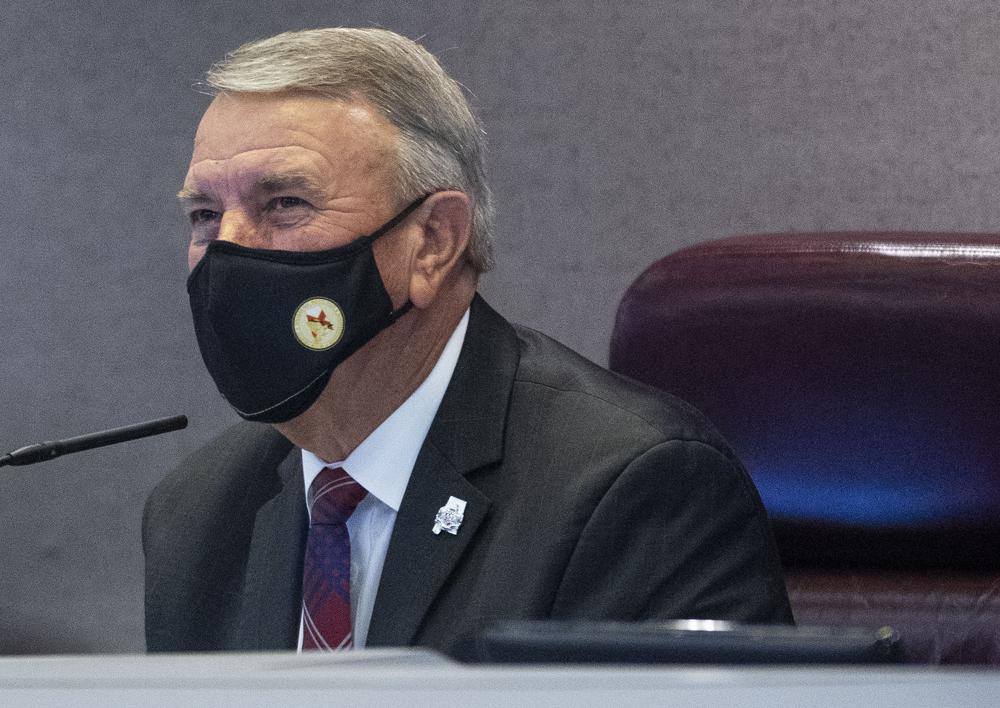
Alabama lawmakers ended the 2021 legislative session without a vote on a gambling bill, and Gov. Kay Ivey indicated she will only call a special session on the issue if lawmakers can reach an agreement — something they have been unable to do for decades. The session wound down Monday night without a House vote on the Senate-passed lottery and casino bill. House Speaker Mac McCutcheon said House leaders opted not to bring the bill up for debate on the busy final legislative day after negotiations fell apart earlier this month. “I’m quite disappointed,” said Republican Sen. Jim McClendon, who sponsored the bill. He said the Senate worked hard to get a compromise, only to see the bill fall apart in the House. “It was a lot of work, but so much for that this session,” McClendon said. Alabamians last voted on the issue of gambling in 1999 when voters rejected then-Gov. Don Siegelman’s proposed lottery to fund education. Over the next two decades, lawmakers made multiple attempts to pass a gambling bill but the efforts failed amid battles and turf wars over casino gambling. A spokeswoman for Ivey said the governor has no plans to call a special session and would only consider it if lawmakers reached an agreement. “As she has said, we would need a plan and an agreement on that plan for her to consider that,” Ivey spokeswoman Gina Maiola said. Lawmakers hit sticking points on the number of casinos and language specifying how revenue would be used. The Senate bill would have allowed nine casinos — including sites owned by the Poarch Band of Creek Indians but other sites, that currently have electronic bingo games, had lobbied to be included, saying shutting their facilities down would cost jobs in poor counties. “You can’t just talk about a lottery without all of these other people getting into the discussion,” McCutcheon said. Democrats had sought language in the legislation that gambling revenue would be used for Medicaid expansion. “That has been our priority for the last 10 years,” House Minority Leather Anthony Daniels said. Democrats said there is a misperception across the state about who would benefit from Medicaid expansion, noting that most people who qualify would be the working poor and white. “Expanding Medicaid is to help small businesses that can’t afford to offer health insurance to their employees. It’s the working poor, the people working two or three jobs. Those are the people that will qualify,” Daniels said. Senate Majority Leader Clay Scofield said he believed Senate Republicans would oppose such language because of cost. “I think the Senate Republicans would have a problem with that,” Scofield said. McCutcheon said he did not know if there would be a special session on gambling. “It depends on whether we can get all the differences worked out,” he said. Alabama lawmakers will return to Montgomery for at least one special session in order to draw new congressional and legislative districts. McCutcheon said there is also the possibility of a special session on prison construction. Ivey has proposed to lease prisons, but the plan has hit setbacks with the withdrawal of some finance companies. Some lawmakers have suggested approving a bond issue to build the prisons so the state will own them. Republished with the permission of the Associated Press.
Alabama Legislature: What passed and failed on the last day
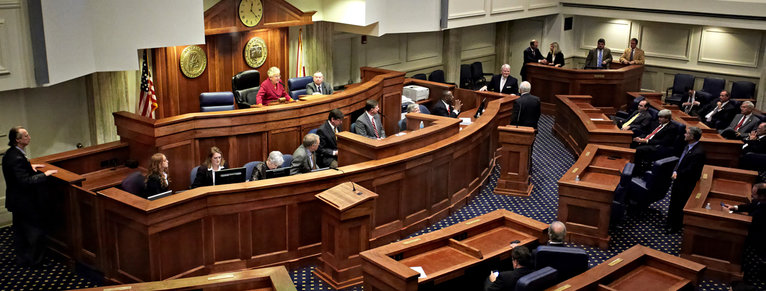
Alabama lawmakers on Monday concluded the 2021 legislative session. Here is a look at the key developments on the session’s final day: WHAT BECAME LAW MEDICAL MARIJUANA Alabama Gov. Kay Ivey signed legislation creating a medical marijuana program in Alabama. The new law would allow people with one of 16 qualifying medical conditions— including cancer, a terminal illness, depression, epilepsy, panic disorder, and chronic pain— to purchase medical marijuana with the recommendation of a doctor. Sen. Tim Melson, the bill’s sponsor, estimated it will be 15 months before medical marijuana is available in the state. The approval came eight years after a medical marijuana bill in 2013 won that year’s so-called “Shroud Award” for the “deadest” bill of the year in the House of Representatives. WHAT PASSED CURBSIDE VOTING BAN Lawmakers gave final approval to a bill by Republican Rep. Wes Allen of Troy that would forbid election workers from setting up curbside areas for people to vote as well as forbid the setting up of voting machines outside a polling place. The bill now goes to Ivey. The legislation sparked partisan debate as Republicans argued curbside voting is not secure but Democrats argued the state should be expanding voting access instead of restricting it. YOGA IN SCHOOLS Alabama lawmakers approved legislation to lift the state’s decades-old ban on yoga in public schools. It now goes to Ivey. The Alabama Board of Education voted in 1993 to prohibit yoga, hypnosis, and meditation in public school classrooms. The bill by Democratic Rep. Jeremy Gray would allow schools to offer yoga although all poses must have English names. Gray said he was unhappy with Senate-added language that requires parents to sign a permission slip and bans meditation, “associated with or derived from mystical traditions of the East.” THIRD GRADE READING PROMOTION REQUIREMENT After COVID-19 disrupted two school years, Alabama lawmakers voted to delay an upcoming state requirement for third graders to meet reading benchmarks before moving up to the fourth grade. The bill now goes to Ivey. Supporters argued it would be unfair to force the requirement on students who were out of the traditional classroom for long stretches during the pandemic. The bill would move the implementation from the 2021-2022 school year to the 2023-2024 school year. GENERAL FUND Lawmakers gave final approval for the general fund budget for the next fiscal year. The $2.4 billion spending plan is up a modest 3.6% over this year. The budget includes a 2% pay raise for state employees. The spending plan now goes to the governor. WHAT DIED GAMBLING Alabama lawmakers ended the 2021 legislative session without a House vote on a Senate-passed lottery and casino bill. House Speaker Mac McCutcheon said House leaders chose not to bring the bill up for debate on the busy final legislative day after negotiations fell apart earlier this month. Ivey’s office indicated she will only call a special session on the issue if lawmakers can reach an agreement. TRANSGENDER TREATMENT The session adjourned without a House vote on a controversial measure to outlaw the use of puberty-blockers or hormones to help transgender minors with their transition. The Alabama Senate approved the bill in March, but it did not get a vote in the House. Opponents, including parents and trans youth, say such measures interfere with medical decisions and target trans individuals for the sake of politics. Sponsors counter that they are trying to protect children from decisions that should wait until adulthood. Arkansas earlier this year became the first state to enact such a measure. OPPOSING FEDERAL GUN LAWS The session also closed without a House vote on legislation to make it a crime for local police officers to enforce any new federal gun restrictions. The bill is part of a wave of GOP nullification proposals to try to resist any new gun control measures. Senators voted 21-5 for the bill by Republican Sen. Gerald Allen of Tuscaloosa, but it did not get a vote in the House. Republished with the permission of the Associated Press.
Gambling bill stalls in Alabama House as tempers flare
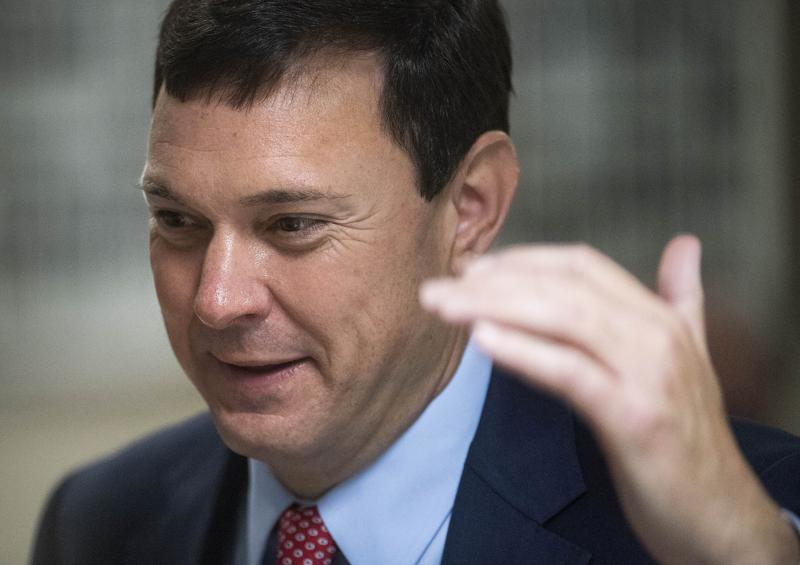
Lottery and casino legislation stalled in the Alabama House of Representatives on Thursday night after negotiations failed to muster enough support, leaving the outlook for the gambling bill doubtful with just a day remaining in the session. The demise of the legislation led to finger-pointing over who was responsible and an unsuccessful effort by Republicans to switch the bill for a GOP-backed lottery proposal. Republicans accused Democrats of making last-minute demands on the bill. Democrats criticized what they described as a bad-faith push by Republicans to change out the bill. House Speaker Mac McCutcheon said he believes the outlook for the bill is “doubtful” with only a day remaining in the 2021 session. “Tensions were high because people have been working so hard. Everybody was just really upset at the way things were. There was no effort to pull anything behind anybody’s back. We were trying to get a bill on the floor,” McCutcheon told reporters. Democrats criticized a push by Republicans to switch the gambling bill — after a day of negotiations — for a GOP-backed lottery bill. “If you don’t have integrity when you’re dealing with gaming, you need to give it up. And what I have seen in this room tonight, integrity is nowhere around,” Rep. Pebblin Warren, D-Tuskegee, said. The casino and lottery bill needed bipartisan support to win approval because of some conservative members’ opposition to gambling. Sticking points emerged over locations and requests from Democrats to sharpen vague language that proceeds could be used for Medicaid expansion, McCutcheon said. As the bill remained short of needed votes, Republicans pushed to bring a lottery bill to the floor instead and pass it without support from Democrats. The House Rules Committee brought a proposed calendar that included the bill and tried to set a quick vote, although that was later abandoned. House Minority Leader Anthony Daniels said Democrats weren’t involved in conversations about that bill. “We weren’t privy to those particular conversations on our side of the aisle. That was something that was quite disturbing. It was a surprise to us just like it was a surprise to most members in the chamber.” The move also angered some Republicans opposed to gambling. Rep. Rich Wingo, R-Tuscaloosa, said they were pushing a quick vote on the bill that “nobody has read.” McCutcheon said lawmakers were trying to be responsive to constituents’ desire to vote on a lottery bill. Alabama is one of five states without a lottery. Alabamians last voted on a state lottery in 1999 when voters rejected a lottery proposed by then-Gov. Don Siegelman. Republican Rep. Chris Blackshear of Phenix City, who handled the Senate-passed bill in the Alabama House, said Alabamians want to vote on a lottery, but said putting together a bill has proven difficult. “If you’ve ever watched one of those football quarterback contests when they’re having to throw and the targets is the back of a four-wheeler, that’s what we’re doing right now. By the time we get there, the target moves,” Blackshear said Thursday morning before the bill fell apart. The original legislation, which would have to be approved by both lawmakers and state voters, would establish a state lottery to fund college scholarships and nine casinos locations that would be located primarily at existing state dog tracks and sites owned by the Poarch Band of Creek Indians. That bill faced opposition from a mix of Republicans opposed to legalized gambling and lawmakers arguing the bill picks winners and losers by naming casino locations. Some opponents argued it is unfair to exclude existing electronic bingo locations in Greene and Lowndes counties operating under current constitutional amendments. The final day of the legislative session is May 17. “It’s going to be difficult to get it passed now,” McCutcheon said of the gambling bill. Republished with the permission of the Associated Press.


